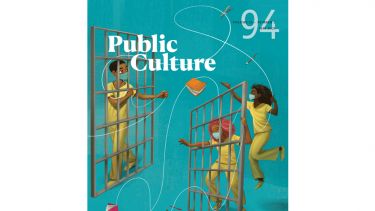Maliq Simone and his colleague Vyjayanthi Rao have recently published a new paper in Public Culture. Sustainable urban transformation increasingly relies upon technicities of computation and interoperability among variegated registers and domains. In contrast, the notion of an “urban majority,” first introduced by the authors nearly a decade ago, points to a different “mathematics” of combination. Here the ways in which different economic practices, demeanors, behavioral tactics, forms of social organization, territory, and mobility intersect and detach, coalesce into enduring cultures of inhabitation or proliferate as momentary occupancies of short‐lived situations make up a kind of algorithmic process that continuously produces new functions and new values for individual and collective capacities, backgrounds, and ways of doing things. This capacity, albeit facing new vulnerabilities and recalibration, will become increasingly important in shaping urban change in a post‐pandemic era.
New paper 'Counting the Uncountable: Revisiting Urban Majorities'

